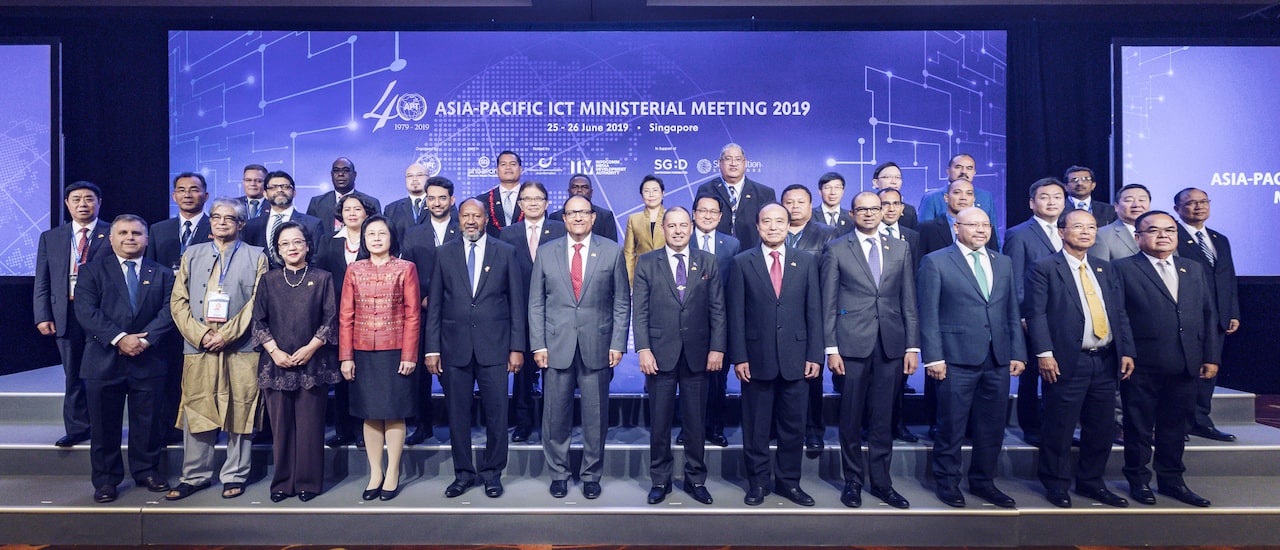In June, ICT ministers across Asia-Pacific got together in Singapore to decide on the direction of ICT development in the region. At the end of the three-day gathering, leaders adopted the Singapore Statement of the Asia-Pacific ICT Ministers on Co-creating a Connected Digital Future in the Asia-Pacific, a set of high-level policy guidelines that will set the tone for activities of the Asia-Pacific Telecommunity (APT) in the next five years.
The Singapore Statement is significant in that it fortifies the principles that underpin a conducive environment for the digital economy to thrive:
- It reinforces support for the multistakeholder approach, with states highlighting their own efforts to make ICT policy processes more inclusive during the meeting.
- It renews its commitment to foster digital communities through collaborative projects to connect unserved and underserved areas.
- It makes explicit references to interoperability and the free and secure flow of information online, putting equal weight on protecting users’ privacy.
It is particularly encouraging to see that amidst the race to capitalize on the vast amounts of data collected from us and our online activities, ICT Ministers opted to focus on trust – built on accountability, transparency, and ethics – as a fundamental pillar in the region’s digital future, one that will enable users to fully explore the potential of the Internet to improve their lives.
The APT, borne out of a treaty-based initiative of the United Nations Economic and Social Commission for Asia and the Pacific and the International Telecommunication Union, has come a long way since it was conceived four decades ago. It has made tremendous progress in harmonizing member states’ policies, facilitating cross-border cooperation, and amplifying the region’s voice in global policy fora.
Since the last Ministerial Meeting five years ago, APT has supported numerous pilot projects to connect remote island communities in the Pacific, strengthened policymakers’ capacity through training courses on Internet Governance, and ensured the participation of small island developing states and landlocked developing countries in international policy discussions.
The APT’s role has never been more relevant: It oversees a region that is home to 60% of the world’s population and accounts for two-thirds of global economic growth. It also has a growing number of tech giants – some of which are among the most valuable companies globally. Yet, there is no denying that vast disparities in ICT and Internet development persist.
With APT’s guidance, the region has begun, in a coordinated manner, to move from coverage to providing meaningful Internet access, and empowering marginalized and vulnerable sectors through accessibility tools and relevant content. It is also heartening to see more and more nation states invest in equipping citizens with the skills and means to protect themselves in cyberspace, recognizing that digital literacy entails much more than knowing how to type and transact online.
International agreements of late have increasingly focused on risks and threats, with a growing number of countries asserting greater control over content, businesses, and activities online. The Singapore Statement makes a confident bid for a positive future, charting a path that will make Asia-Pacific an even bigger force to be reckoned with.
Image ©Engin Akyurt

